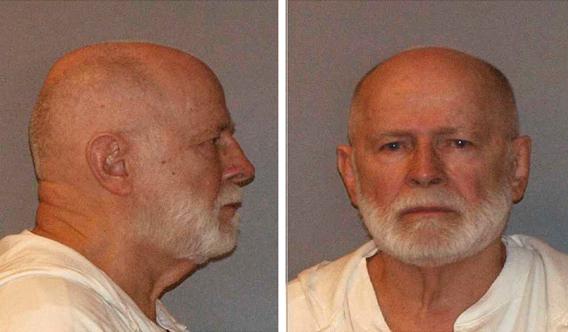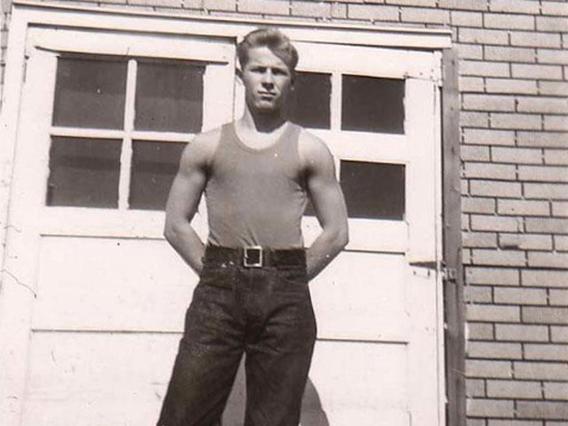Last week, I happened to share a Moakley Courthouse elevator with Whitey Bulger’s lead defense attorney, Jay Carney, who had delivered his closing argument minutes before. Carney’s mother was there—she’d shown up in court to watch, like a proud parent at a piano recital—and she wore giant sunglasses in the way that elderly folks will. “Ma, you’re ready for TMZ!” said Carney, winning chuckles from the elevator audience. Carney enjoyed his line so much that he repeated it for the TV cameras outside. Later, he would confide to the media that he has a fondness for pedicures and that his toenails are painted purple.
Why am I relating this to you? Because some will point to absurd details like these—or to the silly outbursts in the courtroom, or to Whitey’s weirdly irrelevant defense strategy (he barely even bothered to deny most of the charges)—and be tempted to dismiss this entire trial as a useless piece of showbiz. A waste of time and taxpayer money. A dollop of purple polish on an ugly, fungal nail bed.
But human foibles and media motives aside, this was no waste of time. Trials are how we decide the fates of the accused. And Whitey’s fate was decided fairly. Monday marked the end of a nearly 20-year quest to bring a despicable man to justice. Whitey was found guilty of 11 of the 19 murders he’d been charged with, and other crimes, too: extortion, narcotics distribution, money laundering, firearms possession. The evidence was clear and compelling. The murders that the jury did not deem proven tended to date back furthest, and were thus the toughest to prosecute.
For the families of some of the dead, perhaps today brought peace. Others—including a few who sat in court for every moment of the trial, eyeing the back of Whitey’s head—were left with no resolution. I keep thinking of Debra Davis, a beautiful 26-year-old woman who was strangled and then buried in a muddy riverbank. The jury failed to reach a unanimous finding in her killing. Her brother reportedly stormed from the courtroom in anguish, though he later composed himself and fought through his tears to say he wasn’t done, that he’d be “the last man standing.” He’d waited three decades for a sense of finality that now may never come.
As the trial began, I wrote about the Whitey Bulger I remembered from my youth. The larger-than-life gangster who outwitted the law. The guy with his own noble code. A sort of Boston-Irish mascot—a hero to those of us with a soft spot for colorful rogues.

Photo courtesy of Department of Justice via Reuters
I’m happy to say I’ve shed those illusions. I’ve listened to the bookies and the businessmen who feared Whitey’s beatings. I’ve heard tales of brutal extortions and bottomless greed. I’d bought the myth that Whitey kept drugs out of Southie when in fact he’d ushered them in. Whitey claimed that he’d never killed a woman, but the jury says he lied: He strangled Deborah Hussey and then reclined on a couch for a post-murder nap.
Whitey sat bolt upright all summer at the defendant’s table, ankles crossed, jotting in his notepad. Over the weeks, I watched him shrink before my eyes. A mean-faced old man, badly dressed, slight of stature, smaller every day. By the end I half-expected his white sneakers wouldn’t reach the floor and would dangle like a child’s. Given a chance to account for himself, he didn’t have the stones to testify—he must have known he’d crumple under cross-examination. I hope we’ll remember he was scared to speak. And then I hope we’ll forget all about him forever. His summer in the spotlight is over. May his winter be endless.
